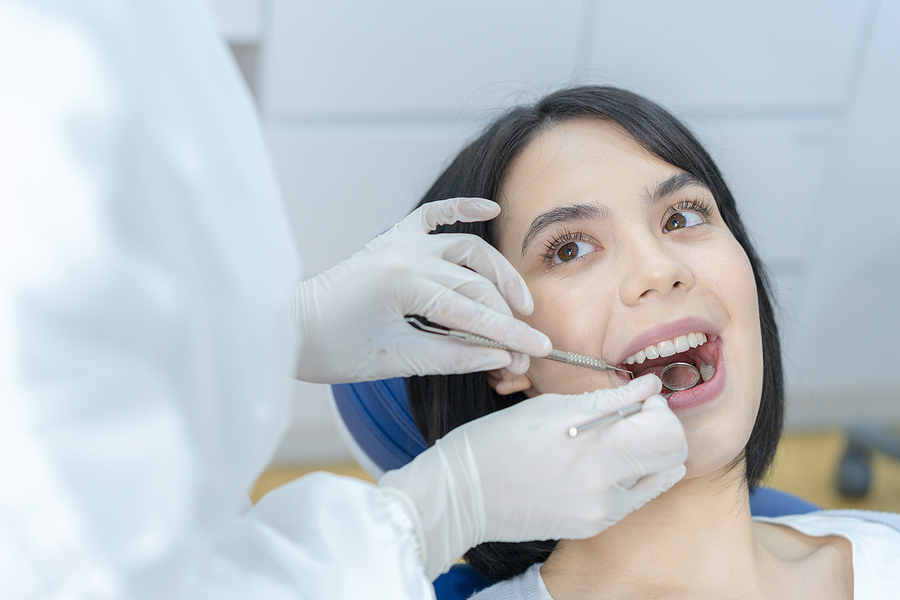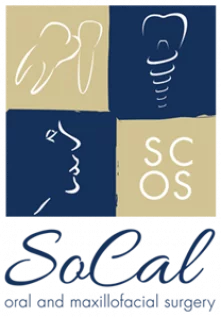What Does a Cavity Feel Like? Understanding the Symptoms and When to Seek Treatment
Posted by Craig C. Thiede, DDS Oct 21, 2024

Cavities, also known as tooth decay, are among the most common dental issues people of all ages experience. While most people are generally familiar with cavities, recognizing the symptoms and understanding what a cavity feels like can help you identify the problem early and seek appropriate treatment before decay worsens. Left untreated, cavities can cause pain, infections, and tooth loss, but early detection can prevent more serious complications.
This guide will explore the sensations associated with cavities, how they develop, and how they are treated. We will also discuss when General Anesthesia in Tustin, CA, might be necessary for individuals with severe dental anxiety or complex dental procedures and why it's essential to consult a dentist in Tustin, CA, for the best action. Contact us to learn more.
What Causes Cavities?
Cavities develop when the enamel (the outer layer of your tooth) is eroded by acids produced by bacteria in the mouth. These bacteria feed on sugar and carbohydrates from your food and drinks. Without proper brushing and flossing, plaque—a sticky, bacteria-filled film—builds up on your teeth and begins to break down the enamel. Over time, this leads to small holes or cavities.
Factors that increase the likelihood of developing cavities include:
- Poor oral hygiene habits
- Frequent consumption of sugary or acidic foods and drinks
- Lack of fluoride in your oral care routine
- Dry mouth, which reduces the amount of saliva to wash away harmful bacteria
- Genetics, which can make some individuals more prone to tooth decay
What Does a Cavity Feel Like?
The sensation of a cavity can vary depending on its size, location, and severity. Cavities don't always cause immediate discomfort, especially in their early stages, so they often go unnoticed until a dental exam. However, as the cavity progresses, you may start to experience a variety of symptoms. Here's a breakdown of the different sensations you might feel:
Sensitivity to Hot, Cold, or Sweet Foods
One of the first signs of a cavity is increased sensitivity to temperature changes. You might notice a sharp pain or discomfort when eating or drinking something hot, cold, or sugary. This sensitivity occurs because the enamel is starting to wear away, exposing the softer, more sensitive layers of the tooth underneath.
Aching or Throbbing Pain
As a cavity gets larger and the decay spreads deeper into the tooth, you might experience a persistent ache or throbbing sensation in the affected area. The pain may be mild initially but can intensify over time, particularly when chewing or biting down. This is a sign that the cavity is worsening and reaching the inner layers of the tooth, where the nerves and blood vessels are located.
Sharp Pain When Biting
If a cavity is left untreated for too long, it can cause sharp, sudden pain when you bite or pressure the affected tooth. This can indicate that the cavity has reached the dentin or even the pulp (the innermost part of the tooth), irritating the nerves. The decay has become more severe at this stage, and you should see a dentist in Tustin, CA, as soon as possible.
Visible Holes or Dark Spots
In some cases, you may be able to see a cavity on the surface of your tooth. It can appear as a dark spot or hole in the enamel, particularly in the grooves of your molars. If you notice visible damage or discoloration, it's a clear sign that tooth decay has progressed, and it's time for a dental visit.
Bad Taste or Bad Breath
As cavities develop, bacteria can accumulate in the decayed area, leading to bad breath or a foul taste in your mouth. This is often accompanied by other symptoms, such as pain or sensitivity, but it's another indication that decay is present and should be addressed.
When to Seek Treatment
Cavities are a progressive condition, meaning they will continue to worsen without treatment. Early detection is key to preventing further damage and more invasive procedures. If you notice any of the symptoms mentioned above, it's important to schedule an appointment with a dentist in Tustin, CA, as soon as possible.
Regular dental check-ups are crucial in catching cavities early, even before they cause noticeable symptoms. A dentist can identify small areas of decay using X-rays and visual exams and recommend appropriate treatments to stop the progression.
How Are Cavities Treated?
The treatment for a cavity depends on how far the decay has advanced. Common treatments include:
Dental Fillings
A dental filling is the most common treatment for small to moderate cavities. The decayed part of the tooth is removed, and the hole is filled with materials such as composite resin, amalgam, or porcelain. This restores the tooth's structure and function while preventing further decay.
Crowns
A crown may be necessary if the cavity is large and has caused significant damage to the tooth. A crown is a custom-made cap that covers the tooth, providing protection and restoring its shape and function.
Root Canal Therapy
When the decay reaches the pulp (the inner part of the tooth containing nerves and blood vessels), a root canal may be required. During this procedure, the infected pulp is removed, and the inside of the tooth is cleaned and sealed. A crown is often placed on the tooth after a root canal to protect it from further damage.
Tooth Extraction
Extraction may be necessary in severe cases where the tooth cannot be saved. This is typically a last resort and only done when the tooth is too damaged to be restored.
When Is General Anesthesia Necessary?
While most cavity treatments are performed with local anesthesia, some patients may benefit from General Anesthesia in Tustin, CA. General anesthesia is typically reserved for individuals with severe dental anxiety, young children who cannot sit still for extended procedures, or patients with special needs that make it difficult to undergo dental treatment.
For complex cases, such as multiple cavities or a need for extensive restoration work, General Anesthesia in Tustin, CA, ensures that the patient remains completely comfortable and pain-free throughout the procedure. A trained anesthesiologist administers it and allows the dentist to perform the necessary treatments in a safe and controlled environment.
Preventing Cavities
The best way to prevent cavities is to maintain good oral hygiene habits. This includes:
- Brushing your teeth at least twice a day with fluoride toothpaste
- Flossing daily to remove plaque and food particles between teeth
- Reducing sugary and acidic foods and drinks
- Visiting a dentist in Tustin, CA, for regular cleanings and check-ups
Practicing good oral hygiene and seeing your dentist regularly can reduce your risk of cavities and maintain a healthy, pain-free smile.
Conclusion
Cavities are a common dental issue, but understanding what they feel like and catching them early can make all the difference in maintaining oral health. If you're experiencing sensitivity, pain, or other signs of tooth decay, don't delay seeking treatment from a dentist in Tustin, CA. In more complex cases, General Anesthesia in Tustin, CA, can make the process more comfortable, allowing you to receive the care you need without anxiety. Regular dental care and good hygiene practices are the keys to keeping cavities at bay and enjoying a healthy smile for years.
So schedule an appointment with us at SoCal Oral and Maxillofacial Surgery, located at 13522 Newport Avenue, Suite 109, Tustin, CA 92780. For bookings and consultations, call (714) 730-6767. Please visit our official website to learn more about the various services we provide.
Location
13522 Newport Avenue, Suite 109,
Tustin, CA 92780
Office Hours
MON9:00 am - 5:00 pm
TUE8:00 am - 5:00 pm
WED8:00 am - 3:00 pm
THU8:00 am - 5:00 pm
FRI7:00 am - 3:00 pm
SATClosed
SUNClosed
13522 Newport Avenue, Suite 109,
Tustin, CA, 92780
Phone: (714) 730-6767Text Us: (714) 730-6767




